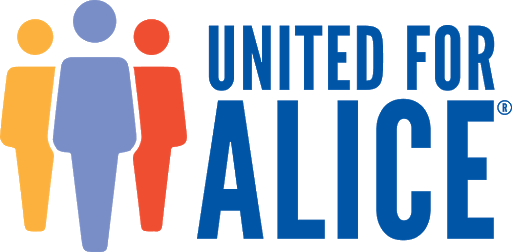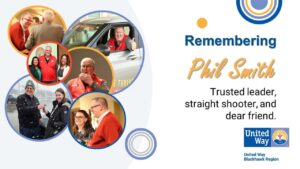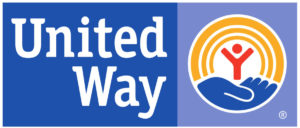MADISON, WI—Despite the presence of many COVID-era social and financial support measures, a resounding 34 percent of Wisconsin’s 2.4 million households had difficulty affording basic necessities like housing, food, transportation, child care and internet access. This statistic was revealed in the state’s fourth ALICE Report, released today by United Way of Wisconsin in partnership with United For ALICE and local United Ways statewide.
ALICE, which stands for Asset Limited, Income Constrained, Employed, describes households earning more than the federal poverty level (FPL) but less than the state’s basic cost of living, which the report calls the ALICE Threshold. In Wisconsin, 567,854 (~23%) are ALICE, while another 267,433 (~11%) fall below the FPL.
Though the report is being released today, the data reflected within were collected in the heart of the COVID crisis in 2021. A slight increase in the percentage of Wisconsin households falling beneath the ALICE Threshold since the last Report in 2019 (32%) may suggest that financial insecurity has only modestly worsened in that time, but context surrounding the time of data collection suggests hardship is more pervasive.
At the time of data collection, several vital pandemic assistance measures were in place. Supports such as monthly Child Tax Credit payments, emergency rental assistance and a nationwide Centers for Disease Control (CDC) eviction moratorium along with Economic Impact Payments of up to $1,400 per person were all helping to keep households afloat—and have since been eliminated, leaving families scrambling to fill the void.
The expiration of such crucial support measures, along with the continued disproportionate increase in the cost of necessities in comparison to household income in recent years, suggests that substantially more households are struggling to make ends meet at this very moment in 2023. Measures of difficulty such as sustained high levels of food insufficiency, feelings of anxiety and depression, continued difficulty paying bills, increased medical debt and reduced savings provide indications that this trend is indeed beginning to take hold statewide.
Key Takeaways from the ALICE Report include:
- From 2019 to 2021, the total number of households in Wisconsin increased by 2%, while the number of households below the ALICE Threshold increased by 8%.
- In Wisconsin between 2019 and 2021, the average annual cost of living increased 16% for a single adult, 13% for a single senior and 11% for a family of four.
- By age of householder, the youngest (62% of households headed by someone under 25) and the oldest (47% of senior households) had the highest ALICE rates in Wisconsin.
- Of the 20 most common jobs in Wisconsin in 2021, 60% paid less than $20 per hour.
- Only 31% of households below the ALICE Threshold had emergency savings equal to three months of expenses, compared to 75% of households above the Threshold.
“People in Wisconsin continue to work hard to make ends meet for their families, and far too many are struggling to make that a reality,” said United Way of Wisconsin President and CEO Charlene Mouille. “While the state of emergency has been lifted and pandemic assistance removed, the financial hardships of the COVID era remain a very real struggle—now and in the future—for over a third of Wisconsin households.”
Beginning as a pilot program in New Jersey, United For ALICE has grown to include 27 states and the District of Columbia. Each statewide study is conducted by a research team using the same methodology for documenting financial need and hardship, developed in collaboration with Research Advisory Committees made up of experts in a variety of fields.
“The ALICE Report continues to illuminate the extent of financial hardship and the many social and economic barriers faced by so many people,” said United For ALICE National Director Stephanie Hoopes, Ph.D. “Spreading awareness for the hardship of our neighbors is the first step in addressing these issues and building happier, healthier communities.”
Local United Ways across Wisconsin continue doing critical work to improve outcomes for people in their communities, including ALICE. Programs that promote and provide resources for health, education and financial assistance are foundational in advancing the quality of life, especially for those facing continued financial hardship.
“The past few years have been tough for countless Wisconsinites—and for many, things have never been more difficult financially,” Mouille said. “We’re committed to demonstrating just how widespread financial hardship is in our communities and doing the work necessary to help improve the quality of life for our neighbors.”
Local United Ways are working with their communities to co-create responses to these realities. It takes cross-sector collaboration, collective impact and inspiring innovation to create new approaches to address these challenges. Everyone is encouraged to get involved in their local communities.
To read an embargoed copy of the Report and find county-by-county and town-level data on the size and demographics of the Wisconsin ALICE population, as well as the community conditions and costs disproportionately affecting these families, visit https://www.unitedwaywi.org/page/ALICEPress. To learn more about programs, practices and policies to designed to improve access to affordable housing, high-quality child care, education and more, visit https://www.unitedforalice.org/alice-in-action.
United For ALICE is funded and supported by U.S. Venture/Schmidt Family Foundation and local United Ways throughout Wisconsin.
Visit www.unitedwaywi.org to learn more about current statewide initiatives to address the financial hardship experienced by ALICE families and how you can work with your local United Way to help.
About United Way of Wisconsin:
The United Way of Wisconsin (UWWi) is a statewide organization providing member support services to the local and independent United Ways in Wisconsin. Through UWWi member support services, local United Ways in Wisconsin have the capacity to build stronger communities individually and collectively. To join us visit uniteddwaywi.org or call (608) 246-8272.






